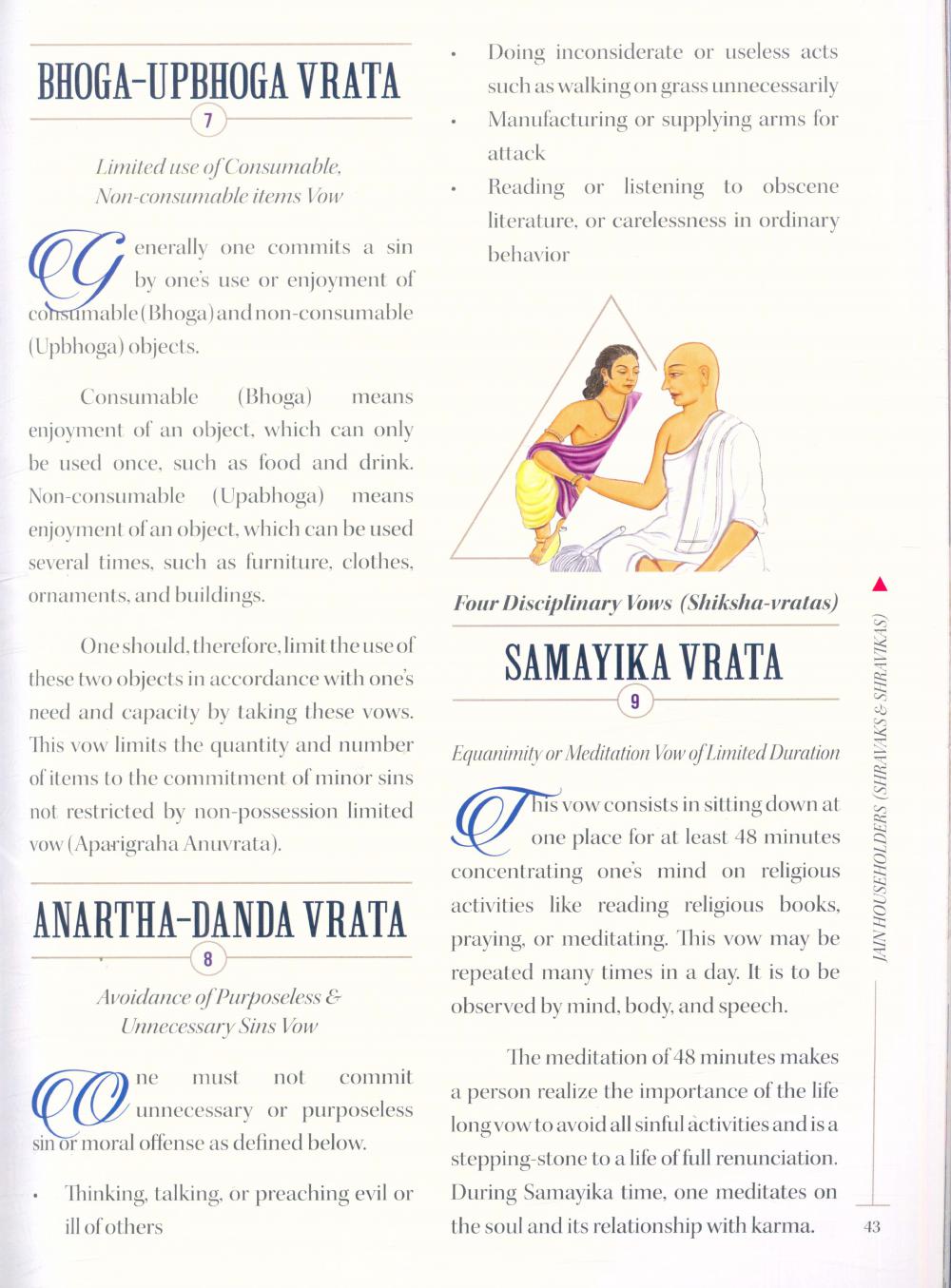________________
•
BHOGA-UPBHOGA VRATA
7
Doing inconsiderate or useless acts such as walking on grass unnecessarily Manufacturing or supplying arms for attack Reading or listening to obscene literature, or carelessness in ordinary behavior
Limited use of Consumable, Non-consumable items Vow
enerally one commits a sin
by one's use or enjoyment of colisumable (Bhoga) and non-consumable (Upbhoga) objects.
Consumable (Bhoga) means enjoyment of an object, which can only be used once, such as food and drink. Non-consumable (Upabhoga) means enjoyment of an object, which can be used several times, such as furniture, clothes, ornaments, and buildings.
Four Disciplinary Vows (Shiksha-vratas)
SAMAYIKA VRATA
One should, therefore, limit the use of these two objects in accordance with one's need and capacity by taking these vows. This vow limits the quantity and number of items to the commitment of minor sins not restricted by non-possession limited vow (Aparigraha Anuvrata).
Equanimity or Meditation Vow of Limited Duration
JAIN HOUSEHOLDERS (SHRAVAKS & SHRAVIKAS)
ANARTHA-DANDA VRATA
his vow consists in sitting down at W one place for at least 48 minutes concentrating one's mind on religious activities like reading religious books, praying, or meditating. This vow may be repeated many times in a day. It is to be observed by mind, body, and speech.
Avoidance of Purposeless &
Unnecessary Sins Vow
ne must not commit
unnecessary or purposeless sin or moral offense as defined below.
The meditation of 48 minutes makes a person realize the importance of the life long vow to avoid all sinful activities and is a stepping-stone to a life of full renunciation. During Samayika time, one meditates on the soul and its relationship with karma.
•
Thinking, talking, or preaching evil or ill of others
43




